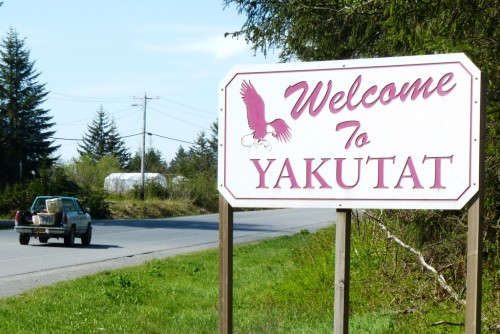Some small Southeast Alaska communities don’t have federally funded jobs. But, residents still have strong reasons to care about the federal budget.
When I called officials in cities across Coastal Southeast Alaska, and asked about how the government shutdown affects their communities, the response was personal:
“My son works for the Weather Service and he was going to purchase a brand new 4-wheeler from AC and go moose hunting and he’s unable to do that since he’s working for free,” says Skip Ryman.
Ryman is the Borough Manager in Yakutat, and his son works for the Weather Service – one of the vital services in Yakutat where employees are working for free, at least until Congress funds the federal government.
Ryman tells me how an investment in a 4-wheeler makes a big difference in a household budget. “I have heard that a subsistence moose to a person in Yakutat is the equivalent of about $3,800 on an annual grocery bill.”
Just like the dent one moose makes in a family’s grocery bill, one furloughed, or unpaid job makes a big dent in the economic well-being of a small rural community.
Ryman estimates that a good 15-20% of Yakutat’s population is negatively affected by the federal government shutdown.
That’s because much of the population is employed by the forest service, parks service, federal aviation agency, and weather service. And without a paycheck, people are tightening their spending.
Ryman worries about how that might trickle down. “It’s certainly going to touch the retail stores and there may be an effect later on the loss of tax revenue.”
Still, Ryman says that many of his neighbors who are federal employees continue to work – ensuring the community receives vital services – without the promise of a paycheck.
“I think there’s a real sense of pride and accomplishment – pride in your job – somebody who worked for the weather service isn’t an employee for the weather service in a small town they are the weather service,” Ryman explains.
Cultural preservation efforts are also vulnerable as the shutdown continues. I spoke with Gary Williams – the Executive Director of Organized Village of Kake – about the Keku Cannery in Kake. It’s a National Historic Landmark and a treasured artifact of Alaska’s salmon industry. The cannery needs major repairs. And Williams is waiting on the paperwork. He’s worried about what would happen if the city can’t start the work before winter.
Williams says, “It could potentially lead to the loss of the building if we can’t make the repairs that are needed.”
He attributes the hold up to furloughed federal employees who typically process the paperwork. Williams says that Kake has plans to use the building for various economic development efforts.
“If we lose it, it would be losing an asset on many levels.”
I also spoke with city officials in Angoon, Tenakee Springs, and Pelican where there aren’t furloughs or direct effects. But, many are apprehensive about how health reform will be implemented after the shutdown, or what changes there might be to how they receive veteran benefits.
Skip Ryman from Yakutat does a good job in summing up the general sentiment:
“I think the full effect of this probably isn’t going to be felt until it’s over.”































